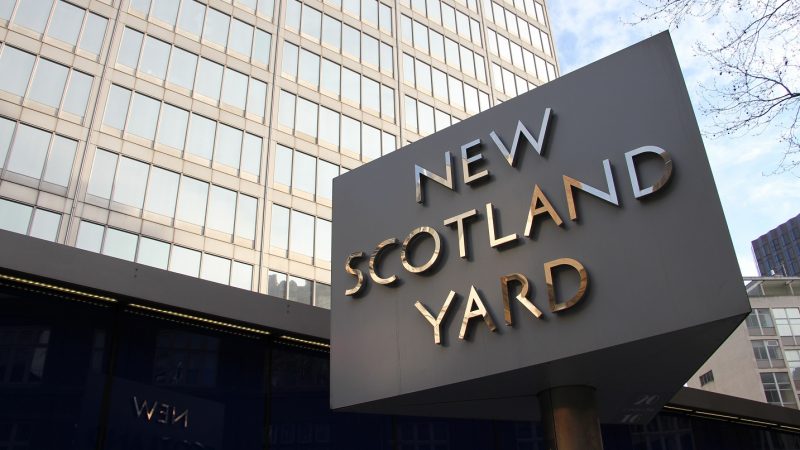81% are also concerned about police officers abusing their power

New research has found that the overwhelming majority of the public want to see an end to strip searches being used on children. 69% of people who responded to a Walnut Omnibus poll agreed that strip searches are traumatic and should not be used on children.
Alongside this, the research also found that 69% of the public agree that the government should look for solutions to serious youth violence that tackle the root causes like poverty, rather than relying on policing.
The polling comes as a new report calls for a radical rethink of how the government tackles youth violence in communities across the UK.
Authored by nine organisations working across human rights, youth services, racial justice, mental health and policing, Holding Our Own: A guide to non-policing solutions to serious youth violence advocates for major investment in trauma-informed support for young people at risk of becoming involved in serious violence in place of a policing-based approach. Human rights group Liberty and the charity Inquest, which provides expertise on state related deaths, were among the report’s authors.
The report comes as the behaviour, actions and practices within the UK’s police forces have come under intense scrutiny in recent years. The Casey Review into the Metropolitan Police published earlier this year found the organisation to be institutionally racist, sexist and homophobic.
This assessment is filtering into public attitudes to the police, with the new research finding that 76% of the public are concerned about racism and sexism in the police force. According to the poll, 81% of the public are also concerned about police officers abusing their power.
Alongside the Casey Review, other aspects of policing have been subject to significant public criticism. The treatment of young people of colour was put into the spotlight following the strip search of a Black schoolgirl known as Child Q while on her period. A recent report by the Children’s Commissioner found widespread abuse of the power to strip search children, with thousands of children strip searched since 2018. In over half of cases, no appropriate adult was present – despite this being a requirement. The report also found that Black children were eleven times more likely to be strip searched than their white peers.
Also among the findings of the new research is that there is public support for investment in services which can prevent young people engaging in criminal activity and violence. 74% of the public agree that the government should spend more on youth clubs to give young people support and guidance, and 76% are concerned about the closure of youth services over the past decade and the impact this has had on young people.
A spokesperson for the National Survivor User Network (NSUN), one of the groups involved in writing the Holding Our Own Report said: “We’re so energised by this joint call for community-led solutions to what gets called serious youth violence. Often, we see calls for increased and expanded mental health services as something that could help tackle the root causes of violence. Our contribution focusses on the ways in which traditional mental health services can be places where people face violence through coercion and restrictive practice. We call for resourced community care so that communities can respond to distress in ways that prioritise care, choice, and freedom.”
Martha Spurrier, Director of Liberty, said: “Whoever we are, and wherever we live, we all deserve to grow up in communities where we are treated fairly and we can be free to live without harassment or discrimination.
“But too many young people today are treated badly by the police, simply for going about their daily lives – particularly women and people of colour. From the thousands of children strip searched every year, to the many young Black boys who are repeatedly stopped by police just because of the colour of their skin – these experiences leave lifelong scars and hinder communities’ efforts to tackle alienation, division and violence.
“It’s time to radically rethink the role of police in our communities. Instead of handing more powers to an institution that can’t be trusted with them, we must make sure all our communities have the resources and tools we need to support our children and young people to flourish. Together, we can end serious youth violence and stop the harm being done by policing.”
Many of the recommendations from the Holding Our Own report relate to the education system. The report calls for an end to school exclusions, the removal of police from schools, and better training for teachers to understand the needs of pupils experiencing racism and discrimination. Its authors also sound the alarm on the impact of drugs policing on young people.
Andre Gomes, Communications Lead at Release, the UK’s national centre of expertise on drugs and drug law, said: “It’s widely understood that the drug war has failed to control drug related harms, having instead become a mechanism of state and racialised control over minority communities in the UK. The criminalisation of drugs and their policing create an excuse for police to harass, strip, and traumatise young people of colour.
“The decriminalisation of drugs, which has already been implemented in over 30 countries, would be the first step towards removing police presence from people’s lives, and set the path to fund other non-carceral activities.”
Chris Jarvis is head of strategy and development at Left Foot Forward
Image credit: Can Pac Swire – Creative Commons
Left Foot Forward doesn't have the backing of big business or billionaires. We rely on the kind and generous support of ordinary people like you.
You can support hard-hitting journalism that holds the right to account, provides a forum for debate among progressives, and covers the stories the rest of the media ignore. Donate today.



